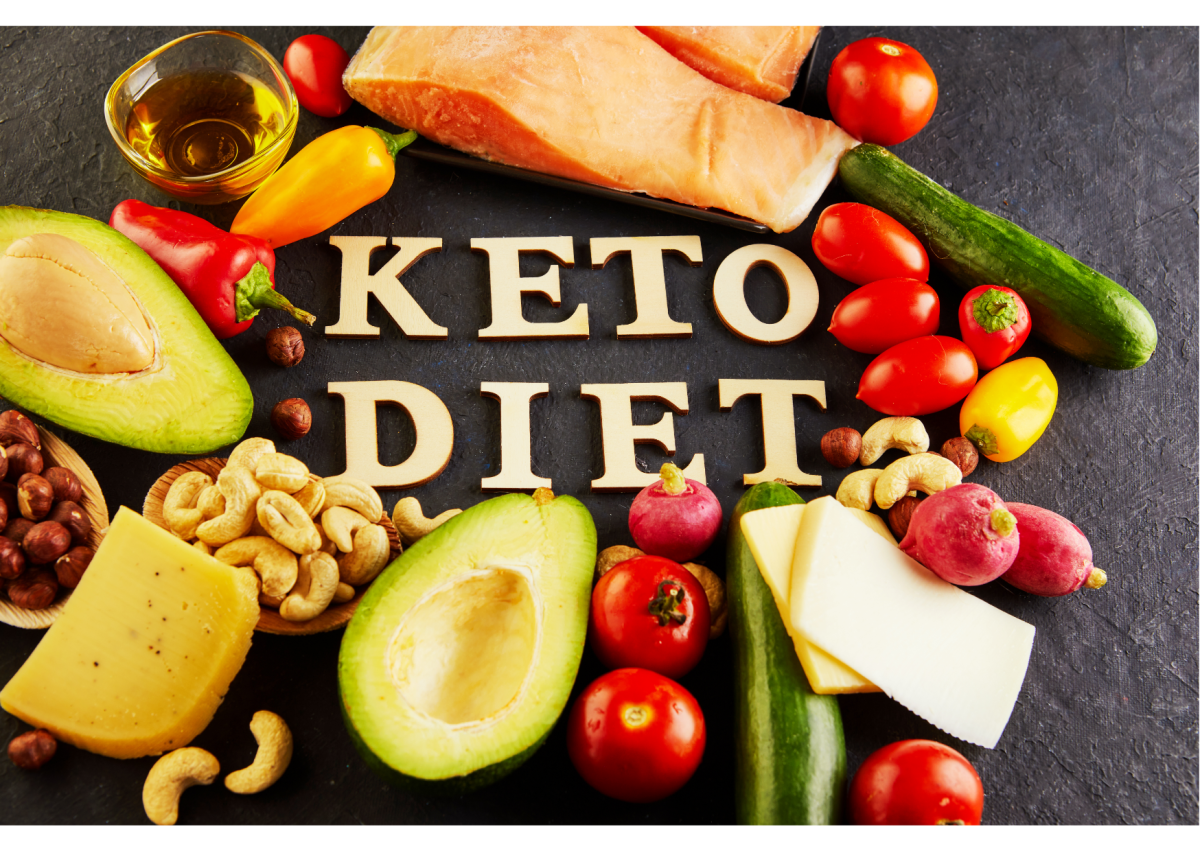‘Why am I bloated on keto?’ answers from a registered dietitian
- Dietary Advice (non Low FODMAP)
Are you bloated on keto? You might be wondering why does does it happen?
As an IBS sufferer, you might have heard that the ketogenic diet can help you gain symptom control. But is it effective, and is it worth it if it causes bloating?
This article will explore what the ketogenic diet is, whether it works for IBS treatment, why it can make you bloated, and what you can do about it.

WHAT IS THE KETOGENIC DIET?
The ketogenic diet, commonly known as the keto diet, is a high-fat, low-carbohydrate eating plan designed to induce a state of ketosis in the body.
The diet typically consists of a high proportion of fats, moderate protein intake, and minimal carbohydrates.
Scientists initially used the ketogenic diet to treat epilepsy, but they have since suggested it for other purposes, too, such as weight loss.
The ketogenic diet remains a valuable therapeutic option for children or those who do not respond well to traditional antiepileptic medications (1).
WHAT IS KETOSIS?
When ketones are present in your body, this is a state of ‘ketosis’.
Ketosis is a metabolic shift when your body burns fat for fuel when your carb reserves run low, as seen in fasting or following a low-carb, high-fat diet, such as the keto diet.
You can test for ketosis in many ways – through your urine, blood, or breath.
Please note that ketosis is not the same as ketoacidosis, which happens in uncontrolled diabetes and is a medical emergency that can lead to coma or death if not promptly treated (2).
CAN THE KETOGENIC DIET HELP IBS?
There is currently no research into the ketogenic diet and IBS. So, it is impossible to know if ketosis would help your symptoms or not.
However, one study showed improved IBS-D symptoms for people on a low carbohydrate diet (20g / day). This study only had 13 people, so we cannot take its findings as gospel (3)!
The study participants likely reduced their overall FODMAP intake, which may have been the culprit of their IBS symptoms, rather than the carbohydrate reduction itself.
Other interesting research looks at the effect of the ketogenic diet on gut bacteria.
There are a few small studies done in people with epilepsy that suggest the ketogenic diet reduces both the amount and the diversity of our gut bacteria (4,5,6).
Again, these studies have limitations – they are small and not done in people with IBS.
However, when you cut out many of the plant foods that are good for the microbiome, as in the keto diet, this is likely to be detrimental to IBS.

Why am I bloated on keto?
Being bloated on keto is a relatively common experience, but there are multiple reasons why this could occur.
Fiber intake
One of the most likely reasons for bloating on keto is that you cut out some high-fiber foods by significantly reducing your carbohydrate intake.
Insufficient fiber intake can lead to changes in bowel habits and potentially cause bloating for some people.
You will need to make a conscious effort to meet the recommended daily fiber intake on the keto diet. You can read more about how to do this in our blog, ‘How to get 30g fibre a day’.
High-fat consumption
With its emphasis on high-fat intake, a keto diet might trigger bloating as fats in the diet can potentially slow down the passage of gas through the bowel, leading to bloating. (7)
At the same time, these fats can ramp up colonic motility by triggering the gastro-colic reflex, which could have the opposite effect and cause diarrhea.
Lactose intolerance
The keto diet includes dairy products, and you may be intolerant to lactose or other components in dairy.
This intolerance can result in bloating, gas, and other digestive discomfort (8).
Check out our blog ‘Understanding Lactose Intolerance: symptoms, diagnosis, and management strategies’ for more information on lactose intolerance and how to manage it.
Sugar alcohols
Keto-friendly foods and snacks often contain sugar alcohols, or polyols (the P in FODMAP).
This is because they contain sweeteners instead of sugar, which has a high carbohydrate content.
While sweeteners can be useful in maintaining ketosis, some individuals with IBS may experience bloating and gastrointestinal discomfort due to excessive consumption (9).
This is because sugar alcohols can be incompletely absorbed in the digestive tract and fermented by gut bacteria. The by-product of which is gas.
You can read more about polyols in our blog: What are Polyols? A definitive guide to their functions, types and usage.
Dehydration
In the initial stages of a keto diet, the body tends to lose water weight as it depletes glycogen stores (the body’s sugar stores).
Dehydration can reduce the water content in the digestive tract, leading to firmer and harder stools.
Dehydration can contribute to constipation, which is often associated with feelings of abdominal discomfort, bloating, and distension.
You can read more about managing constipation on the keto diet in our blog: Keto Diet Constipation: Causes, Remedies and Expert Tips for a Smooth Journey.
How to get rid of bloating on keto
If you are bloated on keto, here are our top tips for managing it:
- Drink at least 2L of water per day
- Plan your meals to include fiber-rich foods
- Include regular exercise in your routine, such as walking, cycling, or yoga
- Be mindful of your intake of sugar alcohols (polyols)
- If bloating persists or worsens, it’s advisable to consult with a healthcare professional or a registered dietitian.
Summary
Being bloated on keto can occur for many reasons. These can include reduction of fiber, introduction of more foods high in sugar alcohols, lactose intolerance, and dehydration.
At present, experts do not recommend following a ketogenic diet for IBS management as there is no evidence that it works, and we do not know what long-term damage it could be doing.
If you are using the keto diet for IBS, consider instead following the low FODMAP process under the guidance of a dietitian.
If you are using the keto diet for other reasons, such as epilepsy management, remember to carefully plan your fiber intake, stay hydrated, and be mindful of polyol intake to avoid bloating.